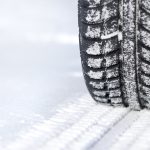Things to Check on Your Car Before Winter Arrives to Kitchener-Waterloo
We’re sure no one is complaining about the beautiful extended fall weather we’ve been experiencing here in Kitchener-Waterloo, but before you know it winter will be here in full force. Before this happens, there are a few things you should check on your vehicle to ensure safe driving all winter long.
Battery
Cold temperatures can be tough on any battery, including the one in your vehicle. When temperatures drop below freezing, you can expect your vehicle’s battery to lose as much as 50% of its power. Nothing is worse than being stranded in the cold with a dead battery, which is why you’ll want to make sure it’s in good working conditioning while the weather is still nice.
Air Pressure in Tires
The pressure required in your tires during the winter is quite a bit different than what is required in the warmer weather months. This is because as the temperature cools, your tires air molecules contract, causing a reduction in air volume. When this happens, the pressure in your tires is reduced. To avoid driving on underinflated tires, closely monitor your tire’s air pressure as the weather cools.
Fluids
The fluids in your vehicle are very important to the functioning of your vehicle, especially during the winter. As the name suggests, antifreeze protects your vehicle’s internal systems from freezing and corrosion in cold weather. Without it, the liquids in your vehicle would freeze when the temperature dips below zero. Windshield wiper fluid is another important fluid you’ll need to top up now as well. In bad weather conditions, windshield wiper fluid helps you keep your windshield clear and the road visible.
Windshield Wipers
Whether you have all-season or winter-specific windshield wipers, make sure that they are in working conditioning before the first snowfall. Paired with windshield wiper fluid, they are critical for maintaining visibility while on the road.
Tire Tread
The deeper the tire tread, the more traction your tires will have on slippery surfaces. Strong tread patterns, like the ones on winter tires, are designed to grip snow and ice and push away slush. If you choose to use all-season tires, keep a close eye on the depth of your tire tread. If it’s less than 2/32 of an inch, it’s time to start thinking about new tires.
Taking the time to look over these five things before, and during, winter will ensure that your vehicle is in the best conditioning to keep you safe on the road. Give our Kitchener-Waterloo shop a call if you have any questions about prepping your vehicle for winter.







